An economist worked in business administration at a municipal electric utility for ten years, until an extraordinary business idea formed from his passion for good bread. The 2018 KfW Entrepreneurs’ Award jury selected Sebastian Däuwel as state winner for Rhineland-Palatinate for his start-up, Die Brotpuristen (“The Bread Purists”).
Closed on Mondays! The bakery, located just up the street from Speyer Central Train Station, always keeps its doors closed on the first day of the week. “We use Monday to prepare for the new week of baking ahead,” Sebastian Däuwel explains. But despite shutting up shop for the day, the founder and owner of Die Brotpuristen is scarcely one to treat Mondays as a time for leisure. Whenever time allows, Däuwel commutes between his bakery and his company’s future location on an industrial estate near the Rhine. He is hoping that the move into Die Brotpuristen’s new home there can be made before the year’s end.
The need to relocate is inescapable. “ Heute schon an morgen denken” – think about tomorrow today – Däuwel says, quoting an old advertising slogan as he gives the tour of his outlet, in which the customers regularly queue patiently at the only till. “I had figured on 200 loaves a day when we started out. Now on our busiest day, Friday, we are already up to as many as 800,” he notes. The Rhinelander is well aware that his 150m2 (1,600ft2) bakery on Bahnhofsstrasse cannot keep up with the wave of success that has swept over Die Brotpuristen in the two years since its founding. In the future, the young entrepreneur is aiming to cope with the onslaught of customers by acquiring new ovens and cooling equipment, along with a second cash register and more retail space.
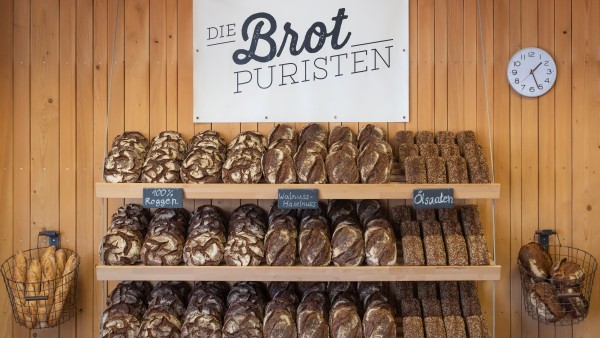
Less is more
The Bread Purists open only in the afternoon and carry no more than four different types of bread on a given day.
Däuwel’s success story here sounds like one from a bygone era. For industry trends are pointing in another direction altogether. The old German saying, Handwerk hat goldenen Boden – or, approximately, “a trade in hand finds gold in every land” – is one that has long since lost its lustre for many master bakers. The number of bakeries employing master craftsmen has been on a steady decline for some years. Between the end of 2010 and the end of 2017 alone, the number of such companies fell from 14,594 to 11,347, according to the German Federation of the Bakery Trade. Fierce price competition from discounters is especially hard on the small bakers. It is also hardly ever possible to find suitable successors when proprietors retire in old age. As a result, many smaller operations have shut down in recent years. “We have almost no new ventures being set up; at most, someone from the same family will take over,” Däuwel himself observes.
It was right in the midst of these difficult economic circumstances that the self-taught career switcher founded his start-up in the cathedral town of Speyer in 2016. “With a special exemption from the Chamber of Skilled Crafts in Kaiserslautern,” Däuwel adds, referring to his authorisation from the local branch of the mandatory-membership trade association to do business without conventional formal training. The business management graduate does not yet have a master craftsman’s diploma to his name. The Bread Purists only open in the afternoon four days a week and carry no more than four different types of bread on a given day. Instead of baking by night, they start early in the morning, in line with Däuwel’s experience that most customers come to buy bread after work in any case.
Learn more under the image gallery.
In demand
The motto of the ”Bread Purists” is quality-over-quantity This is appreciated by the costumers who wait for the delivery vehicle to buy their bread.
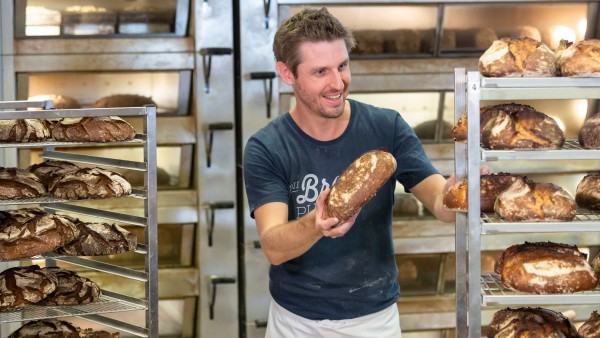
True passion
Däuwel is a career switcher. The know-how he initially lacked was compensated by a very important ingredient – his passion for bread.
His bakery colleagues’ initial doubts about his unconventional quality-over-quantity concept did not throw the man from Speyer off his course. He believes incredibly strongly in the quality of his bread and in the fact that many customers, like himself, long for an alternative to the large bakeries’ ready-made mixtures.
At that time, he was still doing his full-time day job as a managerial accountant at energy company Pfalzwerke AG, rolling and kneading his own bread dough in his spare time only. Däuwel concocted his own rye sourdough, fine-tuning it to find the correct mixture. With great relish, he tried his hand at using professional equipment. He interned for a week at a French bakery in Lyon to learn the art of baguette-making.
For his next step, the bread-lover set up a small bakery at the clubhouse of his tennis club. Then friends and work colleagues, whom he had regularly kept up-to-date about his baking plans, also came to enjoy his pure, additive-free bread products. When he opened a pop-up shop for a week in the town centre and offered his baked goods to customers outside his circle of acquaintances, Däuwel was overrun with demand. “Customers were even calling me up at work and asking when I would be baking bread again. They really kept going, trying to talk me into keeping it up,” the purist from the Palatinate recalls.
In light of this great response, he arrived at the decision have himself entered into the Register of Craftsmen as a specially-exempted baker – to bake commercially from then on without a master craftsman’s diploma. As is so often the case, Däuwel went with his gut and gave up his secure job at Pfalzwerke to instead pursue his new passion. Die Brotpuristen was born.
Speyer is now home to pure bread – after all, Däuwel and his eight-strong team bake without additives and use sourdough that they have made themselves. The dough naturally takes longer ripen. Or in Däuwel’s words: “The dough takes as long as it takes. But the longer fermentation process also helps to make it more wholesome and flavoursome.” Most large bakeries opt instead for a sourdough with a lab-grown culture. “That is why a lot of bread is similar in flavour,” he adds.
Nor does Däuwel work with guar gum (used as a thickening agent), enzymes (produced in the lab to keep the bread artificially fresh or support crust formation) or emulsifiers (which make the dough more voluminous). Rather than aiming to whip up turbo-bread, Die Brotpuristen follow a different principle: taking their time. The list of ingredients typically includes flour, water, salt, and a few spices here and there. Customers now sometimes travel more than 20 miles from Heidelberg and Karlsruhe for the pure bread that is baked this way and individually shaped in Speyer. “They will often buy ten loaves of bread and freeze them to make the long journey worth its while,” Däuwel explains.
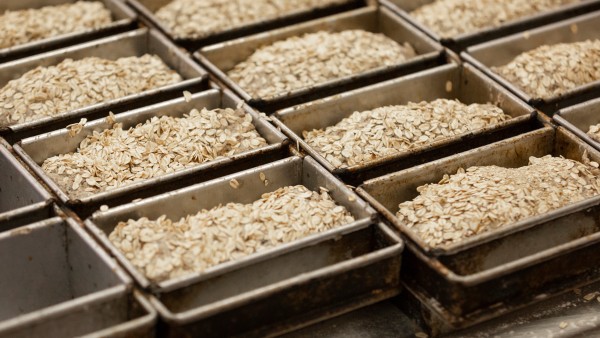
Reduced to the essentials
The recipes of the "Bread Purists" are as simple as genius.
And he takes it upon himself to bring the bread to the customers. An old bread truck drives to Landau in der Pfalz once a week. Typical Däuwel: Passing up a modern delivery vehicle, the Bread Purists chug along in a converted post van from the 1990s on their nearly 20-mile trip to Landau. “Retro is in,” the young entrepreneur says, with his purist bread now joined by a striking vehicle that gives the customer an added sense of originality.
Däuwel is aware that his start-up story has fascinated people. He has been mentioned in a report on good bread in Der Spiegel magazine, as well as in TV reports by SWR and Pro7. The Minister-President of Rhineland-Palatinate, Malu Dreyer, has also stopped off in Speyer and sampled Däuwel’s handmade bread before the flashing glare of the cameras. Däuwel maintains a presence on social media, with his newsletter regularly reaching more than 3,000 users. That did not happen by accident: Däuwel knows that he is part of a movement. “The number of hobby bakers has multiplied in the last few years,” he observes, having noticed new love online for the German people’s most important staple food.
But Däuwel does not believe that many of these hobbyists will be able to follow his example with their own business ideas. “Unlike trendy coffee roasters or craft beer brewers, for instance, they have to come up against the master craftsman’s diploma requirements from the Chamber of Skilled Crafts.” That represents a wasted opportunity for the industry, Däuwel argues in frustration. “If that were different, we would have a great many more innovative bakery start-ups,” he believes. In this sense, the extraordinary story of Die Brotpuristen still has the capacity to inspire people – just like Däuwel’s bread.
Published on KfW Stories: Tuesday, 6 November 2018

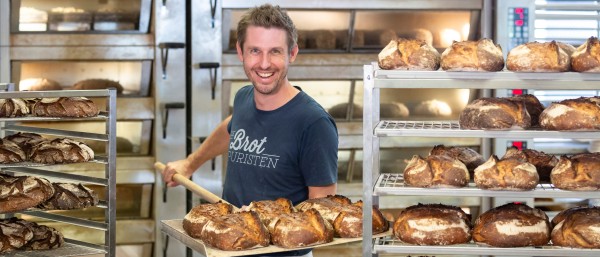
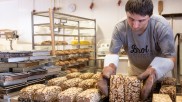
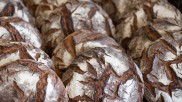
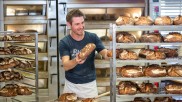
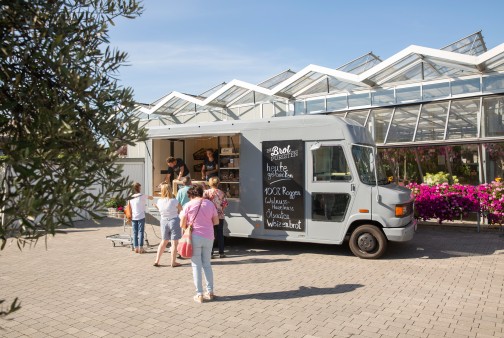
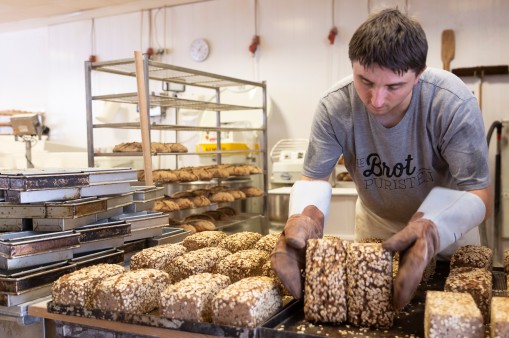
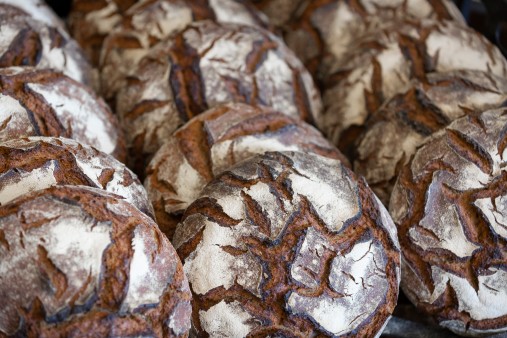
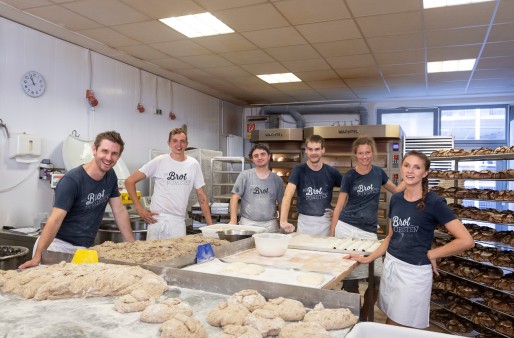




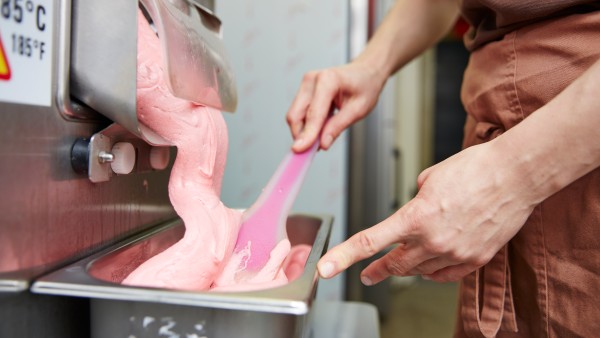
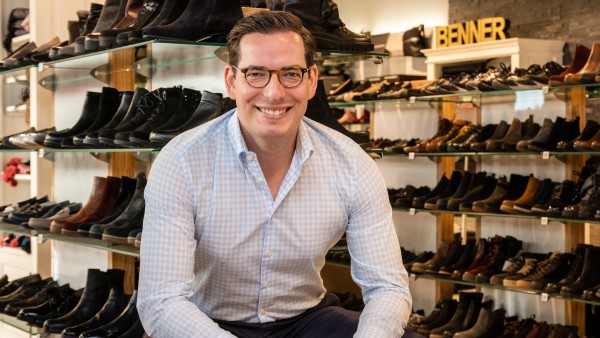
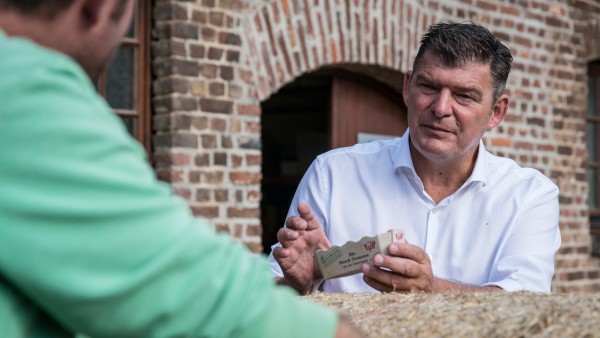
Data protection principles
If you click on one of the following icons, your data will be sent to the corresponding social network.
Privacy information